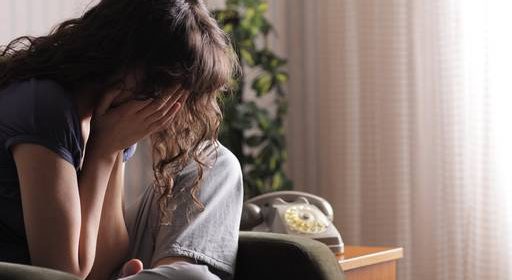Millennials’ struggles revealed as they battle high anxiety

One in four 20-year-olds is suffering high levels of stress and potential symptoms of depression – and young women are worst affected, according to the latest findings from the national study tracking the lives of children.
Overweight and obesity levels have also increased among the group since they were aged 17-18, and again, the problem is most evident among women.
Insights into how 20-year-olds are faring in important areas of their lives and changes since their late teens emerge from the latest ‘Growing Up in Ireland’ research.
It provides a picture about where they live and what they are thinking, their physical health, their emotional wellbeing and relationships, and whether they are still in education or training.
Please log in or register with Independent.ie for free access to this article.
Log In
New to Independent.ie? Create an account
One of the most concerning findings is that as many as one in three young women (32pc) and 23pc of young men presented with “clinically significant depressive symptoms”, while 29pc of females and 21pc of males showed above normal stress levels.
Depressive symptoms do not represent a diagnosis of depression, but the finding is based on responses to eight questions in the survey seeking to assess participants’ emotional wellbeing.
One question asked how often in the previous week they had felt their life was a failure.
These results broadly mirror findings in the ‘My World’ survey published this week, showing 26pc of 18-25-year-olds in Ireland were reporting severe anxiety.
The latest ‘Growing Up in Ireland’ report is an analysis of responses from 5,191 20-year-olds interviewed between August 2018 and June 2019.
Most are still living at home and financially dependent on their parents, especially for basic living expenses.
About 8pc are experiencing financial strain with higher figures from those in the lowest-skilled social classes.
Almost two in three (62pc) are in further or higher education, 6pc are in training, 21pc are working full-time, 6pc are working part-time, and 5pc are not in employment, education or training.
Access to housing is the issue causing most concern to the group, and a desire for financial and employment security featured strongly in their aspirations for themselves in the next 10 years.
Only a minority attach high importance to having a long-term relationship or having a child by the age of 30 – 29pc and 14pc respectively.
Most reported generally positive health, but they have grown fatter since they were aged 17-18. While 27pc were overweight or obese three years earlier, it was up to 36pc by the time they were 20.
The obesity rates among young women is almost double that of young men – 16pc against 9pc.
And young women tend to be less physically active.
About 15pc smoke daily and another 23pc smoke occasionally while almost all (93pc) drink alcohol.
Nearly one quarter use cannabis occasionally or more often.
While high levels of stress were reported, most use constructive strategies to cope, such as talking to friends (51pc), spending time on hobbies or listening to music (50pc) or discussing the situation with their family (37pc).
‘Growing Up in Ireland’ is funded by the Department of Children with a contribution from Atlantic Philanthropies. Research is overseen by the ESRI and Trinity College.
Source: Read Full Article
